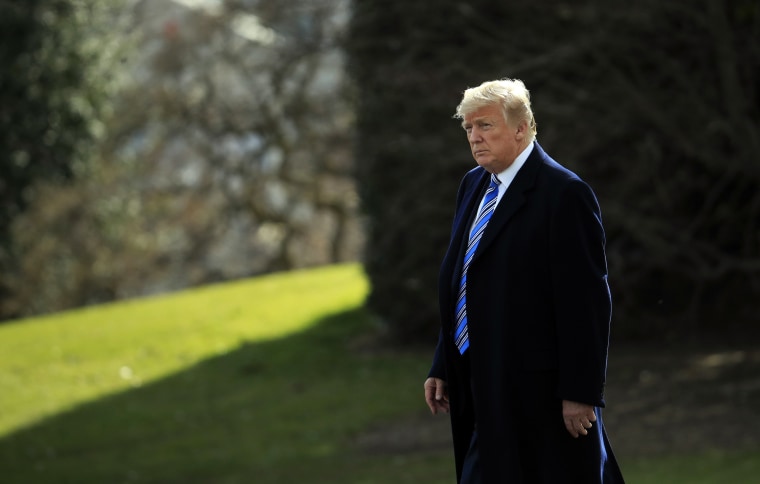It was just last month when Donald Trump chatted briefly with reporters on Air Force One, and in response to a reporter's question, the president said he did not know about the $130,000 hush-money payment to Stormy Daniels shortly before Election Day 2016. The Republican added that he also didn't know where his personal attorney, Michael Cohen, received the money to pay the porn star.
A month later, Rudy Giuliani told a national television audience that Trump's original version of events wasn't altogether true, and yesterday, the president disclosed the truth in black and white.
President Donald Trump reported that he reimbursed personal attorney Michael Cohen for costs apparently incurred in paying adult film star Stormy Daniels for a nondisclosure agreement, according to a federally required annual financial disclosure form released by the Office of Government Ethics on Wednesday."In the interest of transparency, while not required to be disclosed as 'reportable liabilities' ... in 2016 expenses were incurred by one of Donald J. Trump's attorneys, Michael Cohen," a note at the bottom of Page 45 of the 92-page report states. "Mr. Cohen sought reimbursement of those expenses and Mr. Trump fully reimbursed Cohen in 2017. The category of value would be $100,001 to $250,000 and the interest rate would be zero."
The acknowledgement appeared in a footnote.
At face value, I imagine some might see this acknowledgement as underwhelming. Sure, it's newsworthy when a sitting president discloses a previously secret six-figure payment to a porn star -- the sort of development that would probably destroy any of Trump's predecessors -- but yesterday's filing is entirely consistent with what we knew.
And sure, it's important that the president appears to have brazenly lied to the public about all of this, but it's fair to say most observers knew this, too.
What makes Trump's financial disclosure filing so striking, however, is the letter to Deputy Attorney General Rod Rosenstein from David Apol, the acting director of the Office of Government Ethics, that accompanied the president's paperwork. Apol noted, for example, that despite Trump's assertion, the disclosure of the reimbursement payment to Cohen wasn't optional.
And that's no small detail.
Indeed, Apol added that Rosenstein "may find the disclosure relevant to any inquiry you may be pursuing regarding the president's prior report that was signed on June 14, 2017."
Or put another way, it looked as if the Office of Government Ethics might have been making some kind of criminal referral to the Justice Department about the sitting president. In fact, the Campaign Legal Center's Adav Noti told Rachel on the show last night that the OGE letter is, "for all intents and purposes, a criminal referral."
Specifically, if the Cohen payment needed to be disclosed on Trump's filings, that was true last year, too, when the president filed the previous version of this paperwork. But in last year's filing, there was no such disclosure.
If there was an "intent to deceive," to use Adav Noti's phrasing from last night, the legal liability could be serious -- beyond any possible violations of campaign-finance laws.
The Stormy Daniels scandal just got even more interesting.
